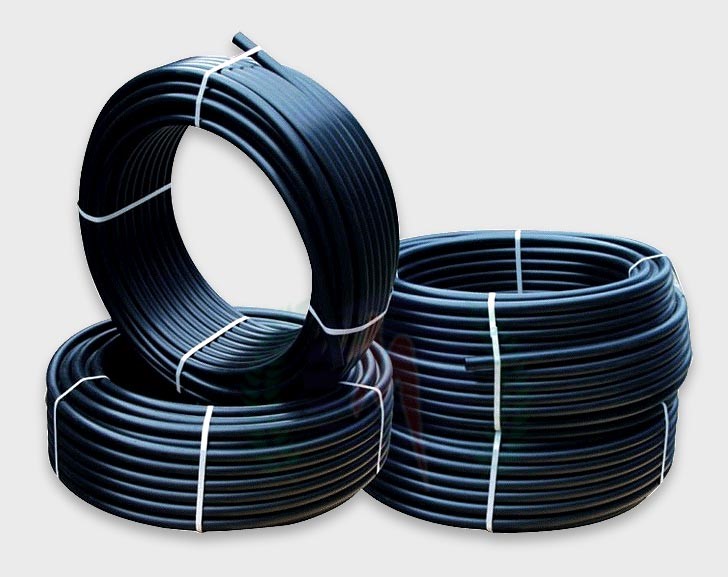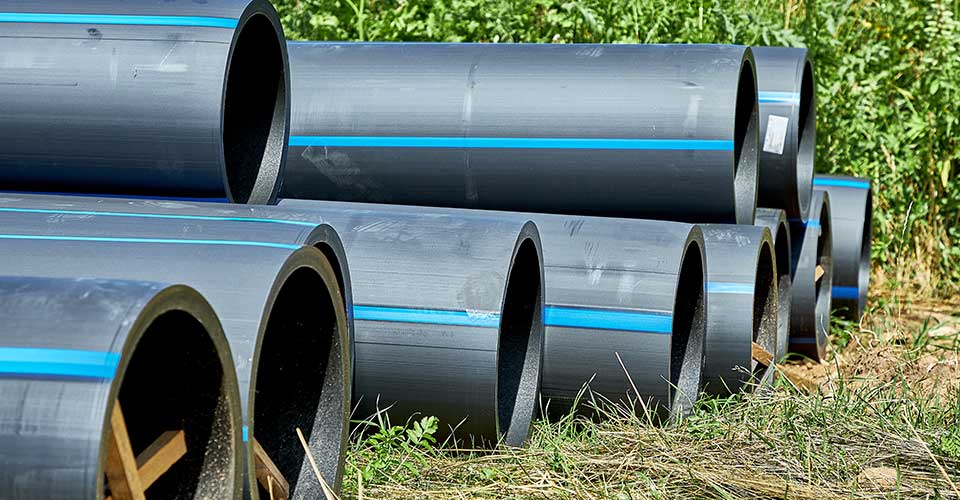Why hdpe pipe in stock Midland TX Is Essential for Local Industries
Wiki Article
Recognizing the Key Conveniences of HDPE Pipe for Water and Wastewater Management
Using HDPE pipeline in water and wastewater administration offers countless benefits that warrant factor to consider. Its outstanding durability and long life-span make it a recommended option for several jobs. Furthermore, the product's resistance to rust and chemical damage enhances its reliability in various environments. Nonetheless, the benefits expand past just longevity and resistance. Discovering its cost-effectiveness and ecological influence reveals much more compelling reasons for its widespread adoption in modern infrastructurePhenomenal Resilience and Durability

HDPE pipeline attracts attention for its exceptional resilience and durability, making it a preferred selection in water monitoring systems. Constructed from high-density polyethylene, these pipelines can withstand substantial stress and stress and anxiety, making certain dependable performance with time. Their durable nature allows them to sustain severe ecological conditions, including temperature variations and dirt motions, which can trigger various other materials to fail.
The life-span of HDPE pipes often surpasses 50 years, offering an affordable service for municipalities and industries alike. Furthermore, the product's light-weight properties simplify installment, decreasing labor costs and timeframes. This durability reduces the need for constant repairs or replacements, even more improving its economic charm.
In water management applications, the integrity of HDPE pipelines suggests less interruptions and improved solution connection, making them integral to sustainable infrastructure advancement. The mix of toughness and longevity solidifies HDPE's role as a cornerstone in effective water monitoring options.

Resistance to Corrosion and Chemical Damages
While several products catch rust and chemical damages over time, HDPE pipelines show impressive resistance, making them suitable for different water administration applications. This resilience stems from the molecular framework of high-density polyethylene, which is naturally non-reactive and does not rust like steels or degrade from exposure to harsh chemicals. Therefore, HDPE is highly efficient in atmospheres with aggressive materials, such as wastewater systems that may include acids, bases, and natural solvents.
Furthermore, HDPE pipes can stand up to ecological variables such as soil level of acidity and saline conditions, better boosting their viability for diverse applications (American Plastics HDPE Pipe Manufacturing). Their capability to maintain structural stability over time decreases the threat of leakages and failings, which is vital in guaranteeing the safety and reliability of water circulation and wastewater administration systems. As a result, the resistance to deterioration and chemical damage noticeably adds to the total effectiveness and durability of HDPE piping remedies
Cost-Effectiveness and Financial Advantages
When thinking about the monetary implications of water monitoring systems, the cost-effectiveness of HDPE pipelines comes to be evident. These pipelines provide lower setup and maintenance expenses compared to standard products like metal or concrete. Their light-weight nature simplifies transportation and installment, resulting in lowered labor expenses. Additionally, HDPE pipelines exhibit a lengthy life expectancy, usually going beyond half a century, which translates to less replacements and long-lasting financial savings.In addition, the resistance of HDPE to rust and chemical damages reduces the demand for costly repair work and replacements. The pipes also sustain reliable water flow, lowering power prices connected with pumping systems. By mitigating leaks and water loss, HDPE pipelines add to substantial economic advantages for districts and sectors alike. Overall, the initial investment in HDPE piping can generate substantial financial returns over the lifespan of the water administration system, making it a prudent choice for lasting framework development.
Environmental Sustainability and Reduced Effect

Versatility and Adaptability in Installation
Due to the fact that of their special properties, HDPE pipes offer amazing convenience and flexibility in installation, making them suitable for a large range of applications. Their light-weight nature permits less complicated handling and transport, reducing labor expenses and installation time. HDPE pipelines can be bent and formed to fit various terrains and job needs, which is especially beneficial in testing settings.Additionally, their resistance to rust and chemical damages enables installation in varied settings without the need for specialized protective finishings. The ability to fuse joints produces a continuous, leak-free system, enhancing the overall integrity and dependability of the installment. HDPE's flexibility also suits ground website movement, decreasing the risk of damages in areas susceptible to moving dirt. On the whole, these qualities make HDPE pipelines not only functional yet additionally a preferred choice for water and wastewater monitoring systems.
Often Asked Concerns
Exactly How Does HDPE Pipe Compare to PVC in Water Monitoring Applications?
HDPE pipe provides superior adaptability, resistance to deterioration, and resilience contrasted to PVC. Its lighter weight promotes much easier installation, while its lengthy lifespan reduces substitute costs, making HDPE a recommended selection in water monitoring applications.What Is the Life Expectancy of HDPE Water Lines Under Typical Conditions?
Under common conditions, HDPE pipes can have a life-span varying from 50 to 100 years. Their toughness and resistance to corrosion add to their long-term efficiency in numerous applications, making them a trustworthy option for facilities.Are HDPE Pipes Recyclable After Their Solution Life?
Yes, HDPE pipelines are recyclable after their service life. hdpe pipe in stock Midland TX. They can be processed and repurposed right into new products, considerably lowering environmental influence and advertising sustainability within the sector, making them an environmentally friendly option for piping optionsWhat Is the Setup Process for HDPE Pipes?
The setup procedure for HDPE pipelines includes website preparation, trenching, pipe fusion or mechanical signing up with, backfilling, and stress screening. Proper techniques ensure a sturdy and effective system for delivering water and wastewater properly.Can HDPE Water Lines Be Made Use Of for Both Potable and Non-Potable Water Solutions?
Yes, HDPE pipelines can be made use of for both drinkable and non-potable water supply. Their versatility, sturdiness, and resistance to rust make them ideal for different applications, guaranteeing risk-free and efficient transportation of water in various contexts.Report this wiki page